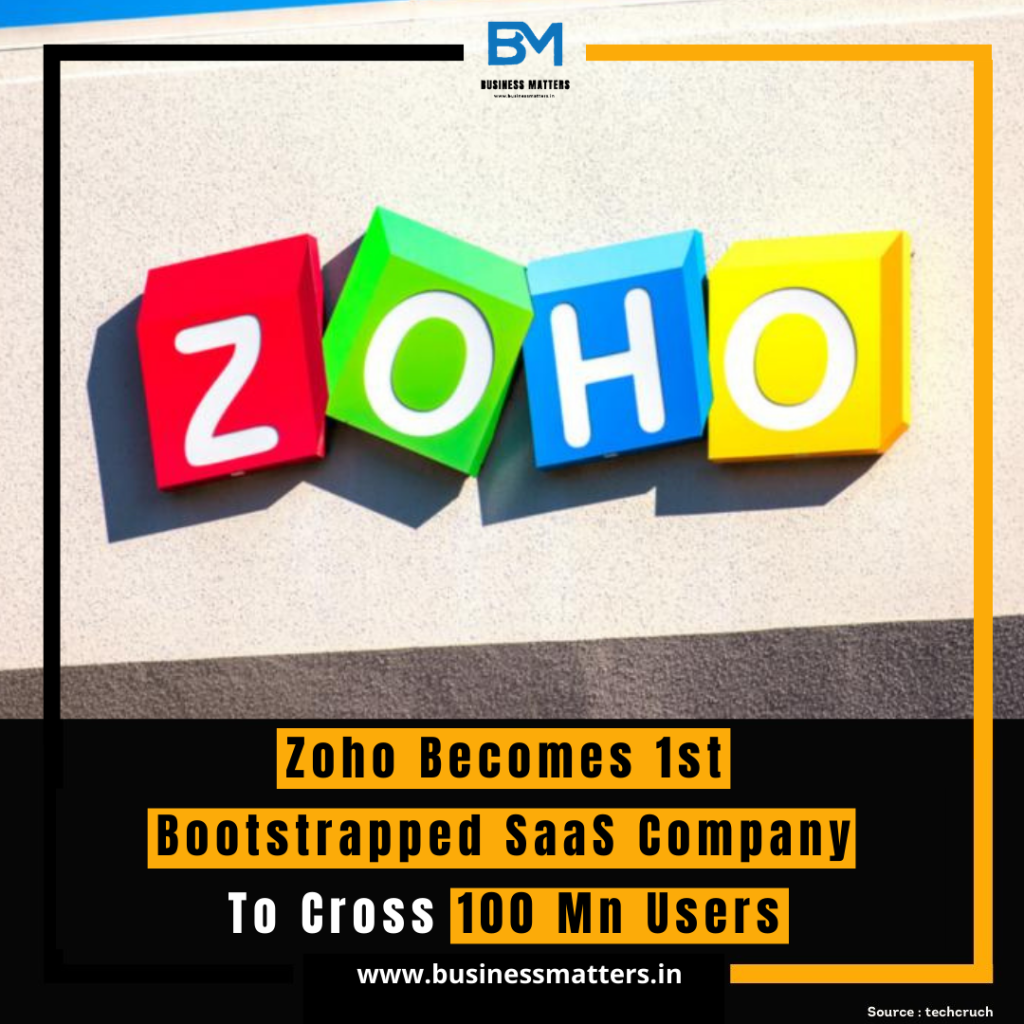
Zoho Corporation: The First Bootstrapped SaaS Company to Cross 100 Million Users
In the realm of Software as a Service (SaaS), where many startups rely heavily on venture capital and external funding to fuel their growth, Zoho Corporation stands out as a remarkable outlier. This Indian-based company has achieved a milestone that is both astonishing and inspirational – becoming the first bootstrapped SaaS company to surpass 100 million users.
Founded in 1996 by Sridhar Vembu and Tony Thomas, Zoho has a remarkable journey that defies the conventional wisdom that SaaS companies require massive infusions of capital to scale. Instead of depending on external investors, Zoho chose to bootstrap its way to success, and this approach has not only proven viable but also allowed the company to maintain control over its direction and values.
The announcement of Zoho’s achievement in crossing the 100 million user mark highlights several key aspects of the company’s success:
1. Organic Growth: Zoho’s remarkable growth is primarily attributed to its ability to organically attract and retain customers. Unlike many SaaS companies that rely on aggressive marketing and sales tactics, Zoho’s products have spread through word of mouth, focusing on delivering genuine value to its users.
2. Comprehensive Suite of Products: Zoho offers a comprehensive suite of cloud-based software solutions that cater to various business needs, from CRM (Customer Relationship Management) and HR to finance, collaboration, and productivity tools. This diversified portfolio has allowed the company to serve a wide range of customers, from small businesses to large enterprises.
3. Customer-Centric Approach: Zoho’s commitment to putting its customers first has been a driving force behind its success. The company prioritizes customer feedback and continually iterates on its products to meet evolving needs. This customer-centric approach has earned Zoho a loyal user base that actively participates in the company’s growth.
4. Global Reach: Zoho’s success story is not limited to one region. The company has a global presence, with customers in over 180 countries. Its focus on localization and offering services in multiple languages has made it accessible and relevant to businesses worldwide.
5. Innovation and Adaptation: Zoho’s ability to innovate and adapt to changing market dynamics has been crucial. The company has embraced emerging technologies like AI and machine learning to enhance its product offerings, ensuring that it remains competitive and relevant in an ever-evolving tech landscape.
6. Cost-Effective Solutions: Zoho’s cost-effective pricing models have made it an attractive option for businesses of all sizes. By offering feature-rich products at competitive prices, Zoho has democratized access to high-quality software tools.
7. Long-Term Vision: Zoho’s founders have consistently adhered to a long-term vision of building a sustainable, ethical, and independent company. Their commitment to self-reliance and a focus on profitability over hypergrowth has set them apart in an industry often driven by valuation metrics.
The significance of Zoho’s achievement extends beyond the company itself. It serves as a testament to the viability of the bootstrapping model in the SaaS industry, challenging the prevailing narrative that rapid growth can only be achieved through massive external funding rounds. Zoho’s story encourages other entrepreneurs to consider alternative paths to success that prioritize sustainability, profitability, and customer satisfaction over unicorn status.
In conclusion, Zoho Corporation’s remarkable journey from a bootstrapped startup to the first SaaS company to cross 100 million users is a testament to the power of innovation, customer-centricity, and a steadfast commitment to core values. It showcases that success in the SaaS industry can be achieved without sacrificing autonomy or ethical principles. Zoho’s story is not just a milestone for the company; it’s an inspiration for the entire tech industry, proving that there are multiple paths to greatness in the world of software.

